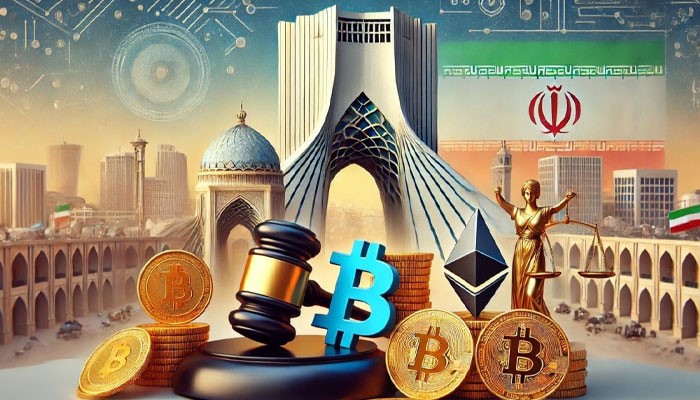The cryptocurrency landscape in Iran is a fascinating mix of opportunity and complexity. Digital currencies have captured the attention of both tech-savvy investors and curious newcomers, offering numerous ways to participate, from mining and trading to altcoin investments and blockchain-based innovations. Despite this excitement, the regulatory environment remains unclear, and legal uncertainties make careful planning essential. Challenges such as fluctuating prices, limited banking access, and security concerns add another layer of complexity, requiring participants to stay informed and adopt responsible strategies. Yet, beyond financial gain, this market represents a broader shift toward technological innovation, efficient cross-border transactions, and economic resilience. Individuals and businesses that understand the rules, monitor trends, and act strategically can find significant opportunities within this evolving ecosystem. For those curious about Iran’s role in the global digital economy, studying this sector provides valuable insights into practical applications, emerging trends, and ways to balance risk and reward. Navigating this space thoughtfully can reveal pathways for sustainable growth and meaningful participation.
Table of Contents
Current Status of Crypto Adoption in Iran
In Iran, the status of cryptocurrencies sits in a gray area. Buying and selling digital currencies is not considered a crime for individuals, but using them for domestic payments is prohibited. So far, no official licenses have been issued for crypto exchanges to operate legally within the country.
However, mining cryptocurrencies is allowed under specific regulations and with proper authorization. The government even permits the use of mined digital assets for import-related payments. This balanced yet cautious approach shows that while Iran recognizes the potential of cryptocurrencies, it still prefers to maintain tight control over their practical use.
- Buy Bitcoin & Trading: People in Iran can legally own or trade cryptocurrencies, including Bitcoin. However, because there are no clear laws yet, anyone who decides to trade does so at their own risk and responsibility.
- Use in Domestic Payments: According to the Central Bank, using cryptocurrencies for domestic transactions is prohibited and they cannot replace the national currency in any form of payment.
- Mining: Cryptocurrency mining is allowed only with official licenses and compliance with energy regulations. The mined coins can be used exclusively for importing goods, as authorized by the government.

Opportunities in Iranian Crypto Market
The Iranian crypto market presents a mix of challenges and promising opportunities. Despite legal uncertainties and banking restrictions, this growing space attracts tech-savvy individuals and investors eager to explore digital assets.
With financial technology evolving rapidly and public interest rising, crypto has become a new platform for investment, entrepreneurship, and digital innovation. Understanding legal frameworks, energy policies, and the overall market dynamics can help individuals make informed and strategic decisions that lead to long-term success in this evolving ecosystem.
Licensed cryptocurrency mining
In Iran, cryptocurrency mining is officially recognized as an industrial activity when conducted under government authorization. Miners who obtain proper licenses from the Ministry of Industry and comply with energy regulations can operate legally and profitably.
However, success in this field requires efficient cost management, standard equipment, and awareness of energy policies. Those who adhere to the rules can benefit from this structured approach while minimizing operational risks and ensuring sustainable profitability within the legal framework.
Using crypto for imports
One of the most practical and uses of cryptocurrencies in Iran is for importing goods under government supervision. The Central Bank allows authorized importers to use mined digital currencies for settling international payments.
This method helps businesses reduce reliance on traditional banking systems while improving efficiency and lowering transaction costs. Nonetheless, transparency, compliance with regulations, and accurate documentation are essential to ensure that such transactions remain within the country’s legal and financial boundaries.
Expanding Blockchain Applications Beyond Cryptocurrencies
Blockchain technology extends far beyond digital currencies, offering transformative solutions for various sectors. In Iran, there is strong potential for innovation in areas such as smart contracts, supply chain tracking, and digital data management.
Tech startups and knowledge-based companies are increasingly exploring these opportunities. Developing blockchain-based infrastructures can enhance transparency, security, and efficiency, paving the way for sustainable growth and modernization in Iran’s digital economy.

Micro investment in cryptocurrency with risk management
For ordinary investors, cryptocurrencies offer exciting opportunities when approached wisely. The market’s volatility requires strong analytical thinking, patience, and risk management. Those who research trends, choose trusted exchanges, and invest strategically can achieve steady growth over time.
Responsible investment involves setting clear goals, diversifying assets, and maintaining emotional discipline. By following these principles, individuals can turn crypto into a profitable yet well controlled financial opportunity.
Legal and Regulatory Challenges
Many people in Iran are becoming more interested in digital currencies as a way to protect their assets and participate in global markets. However, before you Buy Tether or other cryptocurrencies, it’s important to understand the risks and local regulations surrounding cryptocurrencies. While holding and trading digital assets is generally allowed, using them for payments is still prohibited by the Central Bank.
Market volatility, legal uncertainty, and potential financial risks make it essential for investors to stay informed. With proper knowledge and cautious planning, digital currencies like Tether can offer both flexibility and security in a constantly changing financial landscape.

Economic Impact on Cryptocurrency in Iran
Digital currencies in Iran have the potential to create new economic opportunities and simplify paths for trade and investment. These assets can make international money transfers faster and more cost-effective, helping Iranian businesses face fewer challenges from traditional banking systems.
With clearer regulations, the government could generate additional revenue through taxation and proper oversight, while also easing the impact of sanctions. By fostering transparency and structured policies, digital currencies can become a powerful tool for economic growth, supporting business development and innovation. When used responsibly, they offer a practical and forward-looking solution for expanding commerce and strengthening the country’s financial ecosystem.
Future Outlook of Crypto in Iran
The future of cryptocurrencies in Iran comes with both exciting opportunities and notable risks. Growing interest in altcoins and rising trading volumes highlight the market’s significant potential. However, price volatility, security threats, and unclear regulations make sustainable growth challenging.
- Digital Market Growth: Cryptocurrency investment in Iran is steadily increasing, with growing trading volumes reflecting the market’s strong potential for generating revenue and supporting economic development in the coming years.
- Interest in Altcoins: Iranian investors are exploring emerging coins and established projects like Ethereum, Solana, and Cardano to capitalize on upward trends and diversify their portfolios.
- Profit from Currency Fluctuations: The falling value of the rial against the dollar makes digital currencies an appealing and potentially profitable choice for local investors seeking higher returns.
Conclusion
The crypto market in Iran is a unique blend of opportunities and challenges. Yet, within these challenges lie genuine paths for growth and innovation. Individuals who approach this field with awareness and strategy can benefit from mining, trading, investing, or even developing new technologies. Success in this space depends on understanding regulations, maintaining transparency, and making thoughtful, goal-oriented decisions. With a responsible and informed approach, Iran’s crypto landscape has the potential to evolve into a strong foundation for the nation’s digital and economic future.